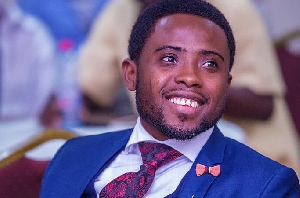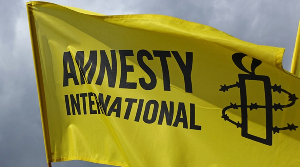Opinions of Monday, 30 July 2018
Columnist: gbcghana.com
Today is World Day against Trafficking in Persons
Today, July 30 is World Day against Trafficking in Persons.
In 2010, the General Assembly adopted the Global Plan of Action to Combat Trafficking in Persons, urging Governments worldwide to take coordinated and consistent measures to defeat this scourge.
The Plan calls for integrating the fight against human trafficking into the UN’s broader programmes in order to boost development and strengthen security worldwide.
One of the crucial provisions in the Plan is the establishment of a UN Voluntary Trust Fund for victims of trafficking, especially women and children.
The Trust Fund facilitates effective, on-the-ground assistance and protection to victims of trafficking, through grants to specialized NGOs.
Human trafficking is a crime that exploits women, children and men for numerous purposes including forced labour and sex.
This year, the United Nations Office on Drugs and Crime (UNODC) has chosen "responding to the trafficking of children and young people" as the focus of the World Day.
This year’s campaign highlights the fact that almost a third of trafficking victims are children.
The theme draws attention to the issues faced by trafficked children and to possible action initiatives linked to safeguarding and ensuring justice for child victims.
The International Labour Organization estimates that 21 million people are victims of forced labour globally. This estimate also includes victims of human trafficking for labour and sexual exploitation.
While it is not known how many of these victims were trafficked, the estimate implies that currently, there are millions of trafficking in persons victims in the world.
Every country in the world is affected by human trafficking, whether as a country of origin, transit, or destination for victims.
Children make up almost a third of all human trafficking victims worldwide, according to the United Nations Office on Drugs and Crime Global Report on Trafficking in Persons.
Additionally, women and girls comprise 71 percent of human trafficking victims, the report states.
In a message to mark the day, UN Secretary General António Guterres said Trafficking in persons is a vile crime that feeds on inequalities, instability and conflict.
Human traffickers profit from peoples’ hopes and despair. They prey on the vulnerable and rob them of their fundamental rights.
Children and young people, migrants and refugees are especially susceptible.
Women and girls are targeted again and again. We see brutal sexual exploitation, including involuntary prostitution, forced marriage and sexual slavery. We see the appalling trade in human organs.
Human trafficking takes many forms and knows no borders. Human traffickers too often operate with impunity, with their crimes receiving not nearly enough attention. This must change.
The United Nations is committed to advancing action to bring traffickers to justice while protecting and supporting their victims. The rights of victims must come first – be they the victims of traffickers, smugglers, or of modern forms of slavery or exploitation.
In their proposed Global Compact for Safe, Orderly and Regular Migration to be adopted in December, Member States have also demonstrated resolve to prevent, combat and eradicate trafficking in persons in the context of international migration.
On this World Day against Trafficking in Persons, let us come together around the key issues of prevention, protection and prosecution to build a future where this crime cannot exist.
Pope Francis for his part, continued to press for an end to the horrendous practice of human trafficking.
“This plague reduces many men, women, and children to slavery for the purpose of labor and sexual exploitation, the sale of organs, of vagrancy and forced delinquency, also here, in Rome. Migration routes are also often used by traffickers and exploiters, to recruit new victims of trafficking. It’s the responsibility of all to denounce the injustices and to oppose firmly this shameful crime.”
Pope Francis at Angelus on July 29, 2018, with a crowd of 25,000 pilgrims in St. Peter’s Square, said Human trafficking is a crime that exploits women, children, and men for numerous purposes including forced labor and sex, according to the United Nations.
The International Labour Organization estimates that 21 million people are victims of forced labor globally. This estimate also includes victims of human trafficking for labor and sexual exploitation.
While it is not known how many of these victims were trafficked, the estimate implies that currently, there are millions of trafficking in persons victims in the world.
In 2013, the General Assembly held a high-level meeting to appraise the Global Plan of Action.
Member States also adopted resolution A/RES/68/192 and designated July 30 as the World Day against Trafficking in Persons.
This resolution declared that such a day was necessary to “raise awareness of the situation of victims of human trafficking and for the promotion and protection of their rights.”
In September 2015, the world adopted the 2030 Sustainable Development Agenda and embraced goals and targets on trafficking in persons.
These goals call for an end to trafficking and violence against children; as well as the need for measures against human trafficking, and they strive for the elimination of all forms of violence against and exploitation of women and girls.
Another important development is the UN Summit for Refugees and Migrants, which produced the groundbreaking New York Declaration.
Of the nineteen commitments adopted by countries in the Declaration, three are dedicated to concrete action against the crimes of human trafficking and migrant smuggling.
In the coming years, it aims to prioritize victims coming from a context of armed conflict and those identified among large refugee and migration flows. It will also focus its assistance to victims trafficked for the purpose of sexual exploitation, organ removal, forced begging, forced criminality and emerging exploitative purposes (e.g. skin removal, online pornography).














